
“This Is My Supervillain Origin Story”: Worker Sabotages Company Project After He Gets Demoted
InterviewIn a reckless race for better profit margins, almost no one can beat a manager at shooting themselves in the foot. Loyal employees will be dropped, quality curtailed and customers left unsatisfied, all in the pursuit of a bit more money. But sooner or later, it comes to bite them in the rear.
One employee shared a bit of mischief-making when their boss demoted them while keeping the responsibilities the same. Realizing that this was not worth the hassle, OP quickly found a new job and left, but not before leaving an important task incomplete just days before a huge deadline. We got in touch with Apprehensive_Pay5195 and they were kind enough to answer some questions. Needless to say, management learned their lesson the hard way.
Managers way too often don’t know what they’ve got until it’s gone
Image credits: Medienstürmer (not the actual photo)
A long-time employee ended up getting demoted to cut costs, so they hatched a devious plan
They weren’t going to do the same job for less pay, so they started by acquiring a new job
Image credits: stokkete (not the actual photo)
Image source: Apprehensive_Pay5195
Hopefully, this story can function as a reminder for others
Bored Panda got in touch with Apprehensive_Pay5195, the OP of this story, and they were kind enough to share their thoughts. We wanted to know their perspective on management’s decisions. “I think companies have come to look at human assets as equivalent to any other type of infrastructure. Employees are no different from a hammer, a pen, or a Xerox machine. We’re a means to profitability. Worse, our cumulative mindset is one of blind loyalty to our employers. We forget that employment should be a mutually beneficial, transactional relationship between employees and employers. To anyone that feels stuck, do something about it. Your situation doesn’t keep you stuck, your inaction does. Remember that loyalty to a company is foolish. A company will drop you in a heartbeat if hard times came. Your company looks out for itself first. There is no loyalty there. Know your worth. Keep your resume up to date and actively and continuously shop around for more work. If you’re willing to look for the best deal on produce so you can save a few bucks, why aren’t you willing to look for better work in order to GAIN 15% in pay?”
We also were curious if they thought the company had learned anything from the situation. “I think my company learned a little. I heard that other coworkers received small raises after I left and they expanded the team a bit. However, my exit was probably a minor inconvenience more than anything else. It would take collective action by employees to create real change.”
Lastly, Apprehensive_Pay5195 left us with these thoughts. “I’d love to remind everyone to respect themselves and know their worth. It may be surprising since I posted in the antiwork sub, but I believe in work and doing my job well. However, that doesn’t mean that I, nor anyone else, should accept mistreatment, tolerate abuse, or blindly serve an employer. As a society, we need to normalize looking out for ourselves and our families first–not a company. Seek out a situation that is better, and do it over and over. There is no perfect employer, but there is always better. Job hop whenever you can. Your annual raise is likely to be between 3-7% if you stay in one place. Switch companies and you could at least get 15% more. It’s a huge difference. I’ve more than doubled my salary since I left that job, and knowledge to continually look for better has served me in ways that loyalty to a company could never.”
Cutting salaries might end up costing you more in the long run than just giving someone a raise
Image credits: Karolina Grabowska (not the actual photo)
It’s almost staggering to think that OP spent around eight years at an organization that still had the gall to demote them. This seems like an eternity compared to the average for younger workers, which in 2023 stands at 2.8 years for people between the ages of 25 to 34. Plus, OP clearly works in a specialist role, meaning their expertise and experience should be more in demand than ever. After eight years, it’s safe to say that an employee is downright loyal, but managers being shortsighted is a tale as old as time. Common sense would dictate that keeping such a worker would be valuable and in the company’s best interest, particularly if there is a deadline coming up. A more cynical manager would perhaps preserve OP’s title until after the deliverable, but this story is full of shortsightedness all around.
Beyond the obvious benefits of a worker that knows the ins and outs of a company, there are a lot of hidden costs for replacing them. Turnover lowers productivity, as new workers have to be found and when they are found, they need to be trained. Some estimates indicate that the “costs” of acquiring a new employee are roughly 33% of the salary of whoever they are replacing. At the end of the day, companies exist to make money, but this doesn’t mean that “immaterial” concepts like loyalty, reciprocity, and morale aren’t all important for the bottom line. If loyalty is rewarded, employees will be more loyal to the company. On the flip side, demoting someone like OP also sends the message to all employees that this company doesn’t care if you give them a decade of your time. These days, many workers are more savvy, and will rapidly quit if the company doesn’t seem like a good fit. About a fourth of new workers leave in roughly one year.
Workers are starting to wise up to the fact that their loyalty often won’t be rewarded
Image credits: Anna Shvets (not the actual photo)
Now, many companies that undervalued their staff are facing the consequences. The great resignation is a good test to see just how well or poorly a company treated its workers over the last few years. The scale of the “great resignation” indicates that most have a lot of room to improve. The bottom line, so important to many managers, is that undervalued workers are significantly more likely to leave. At scale, the loss of productivity and constant retraining does not seem like they add up to a functioning business in the long run. However, managerial incentives often mean that uncreative or particularly greedy bosses will cut costs to get bonuses. This ultimately can prove disastrous for the company, as OP’s story shows.
It is probably too much to ask for companies to think about things outside of a cell in a spreadsheet, so perhaps the actual numbers will help. Setting aside the many, many hidden costs of poor employee retention, companies with highly engaged employees tend to perform better. And to put it into numbers that a spreadsheet fanatic can understand, companies with more motivated workers are about 21% more profitable and 17% more productive. We all know that profitability does get decision-makers’ attention, so hopefully, in the long run, people start to draw the right conclusions. And this applies to employees as well, OP said that they now always look out for themselves when looking for a job. The rise in popularity of groups like r/antiwork shows that workers are starting to demand better treatment, and we will all be better off for it.
Readers reacted with mirth at OP’s story and they answered some follow-up questions
Others gave their own stories of bosses trying to cut corners
In any job contracts I have had, any work produced in company time belongs to the company. You are lucky to not be receiving a giant sueball.
Company doesn't know what they had if they never knew what that had...
Load More Replies...Former corporate executive HR here for a fortune 500. I sat in meetig multiple yomr
In any job contracts I have had, any work produced in company time belongs to the company. You are lucky to not be receiving a giant sueball.
Company doesn't know what they had if they never knew what that had...
Load More Replies...Former corporate executive HR here for a fortune 500. I sat in meetig multiple yomr

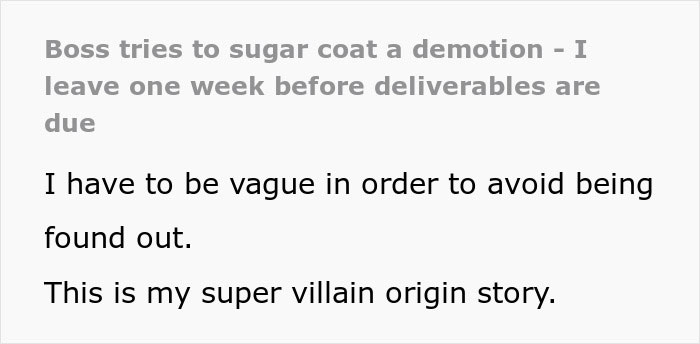
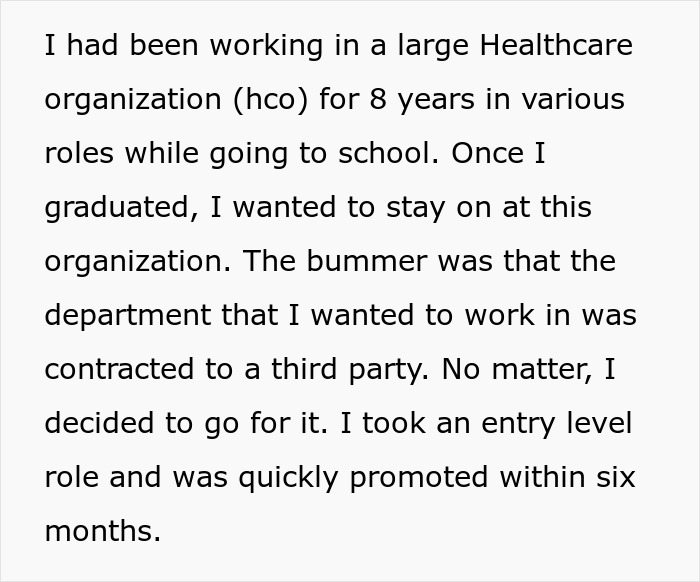
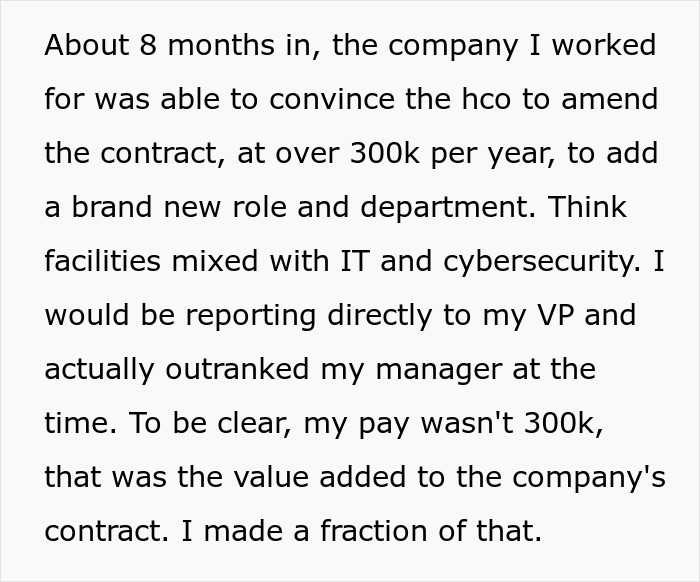

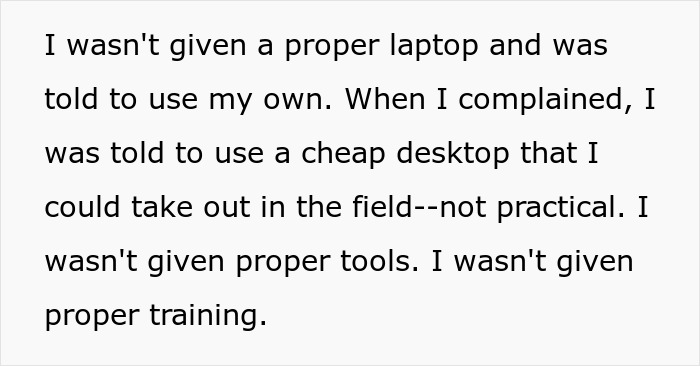
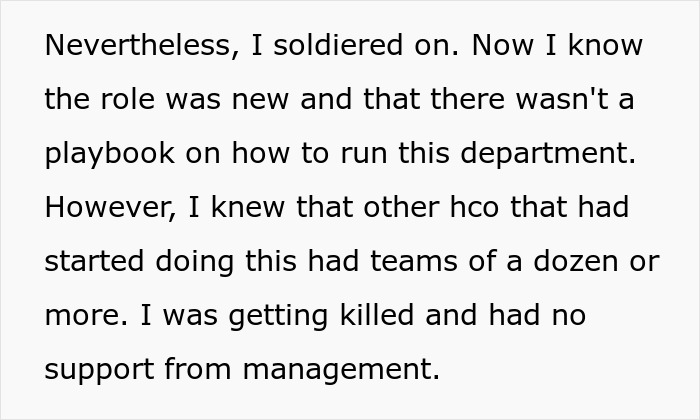
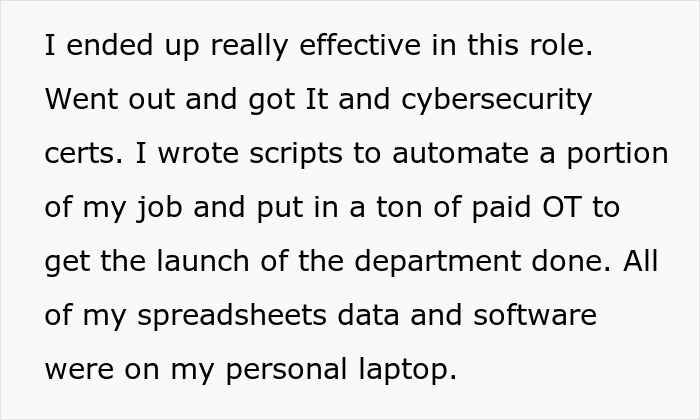
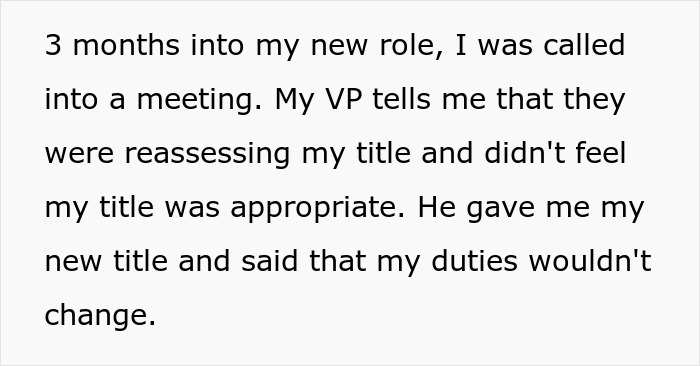
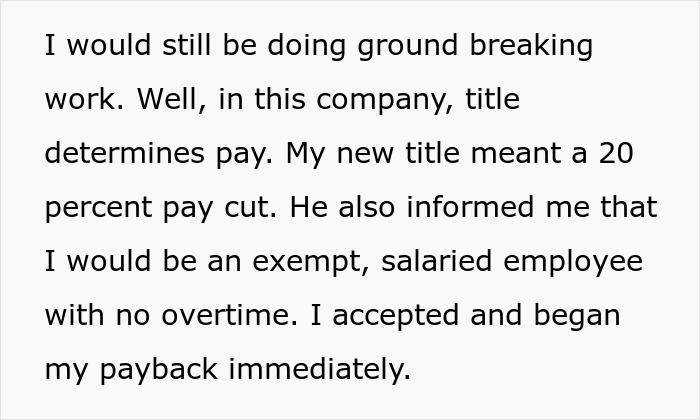

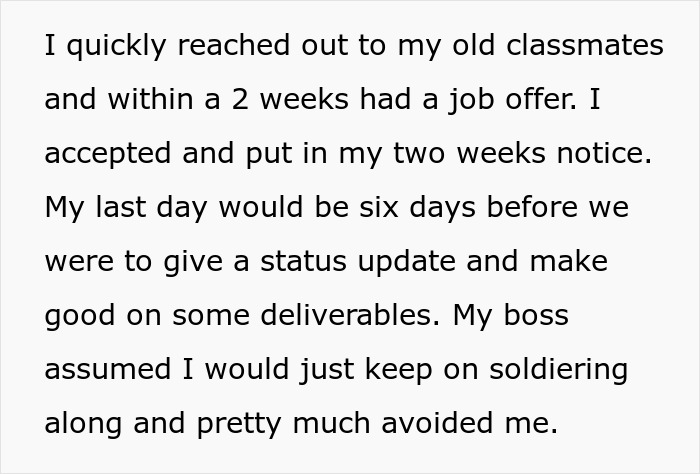
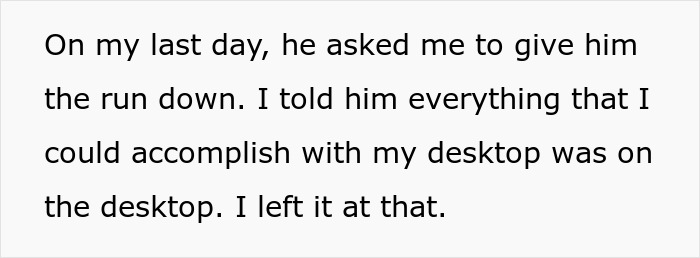
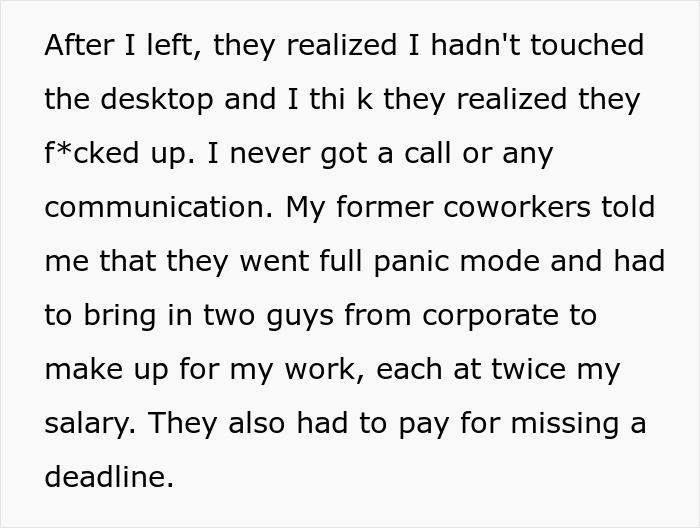
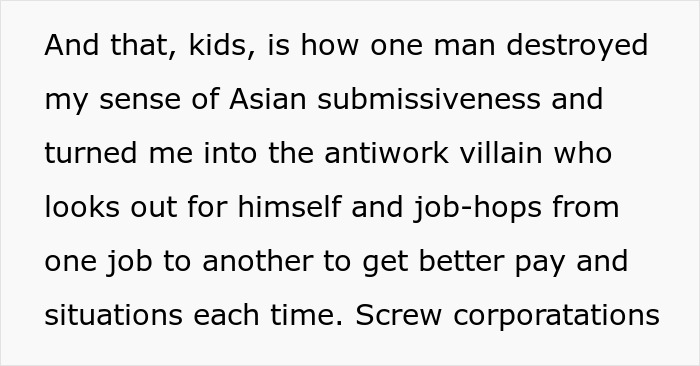


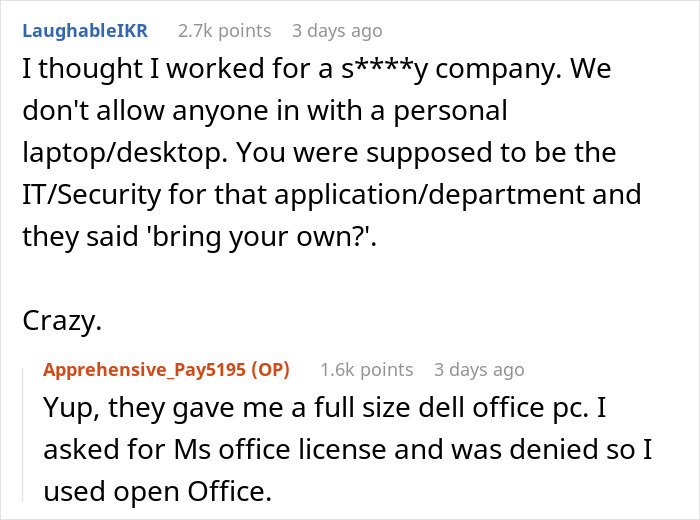
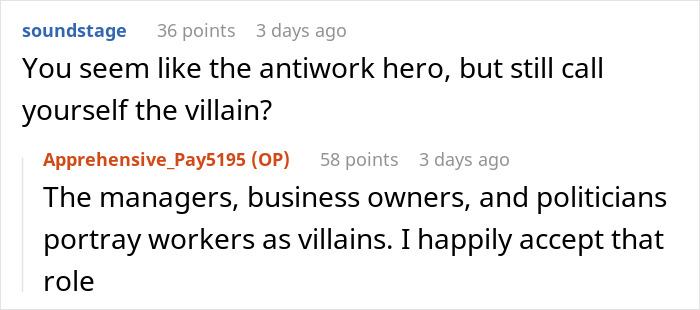
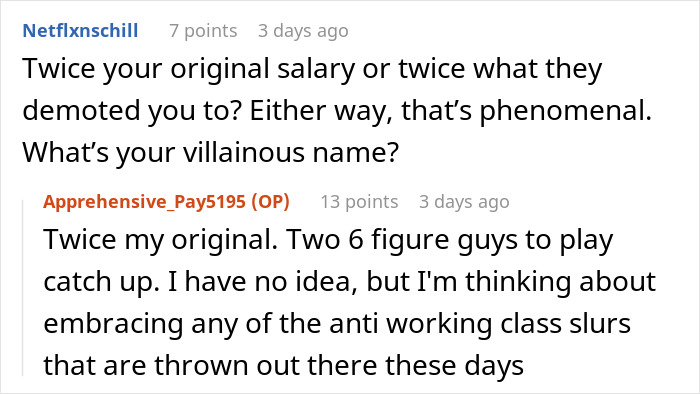
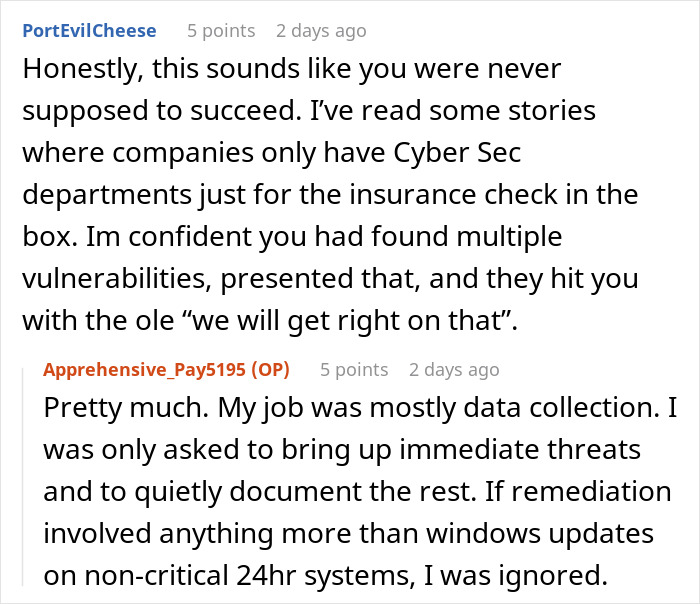


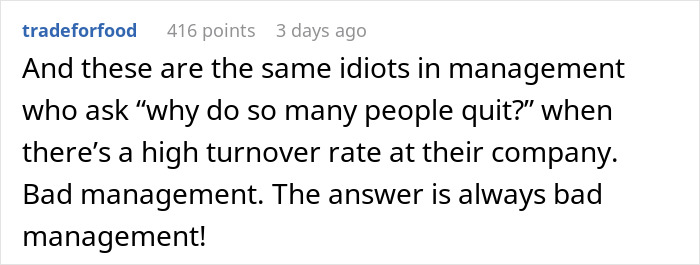






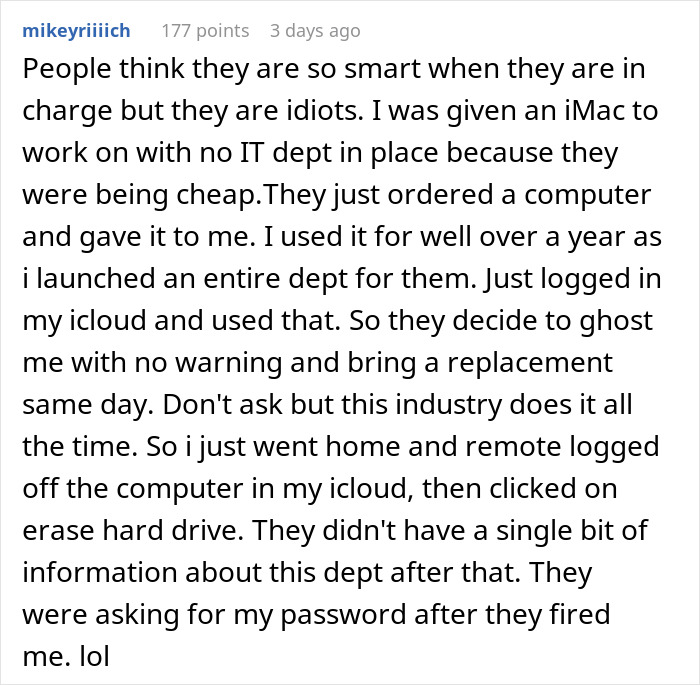
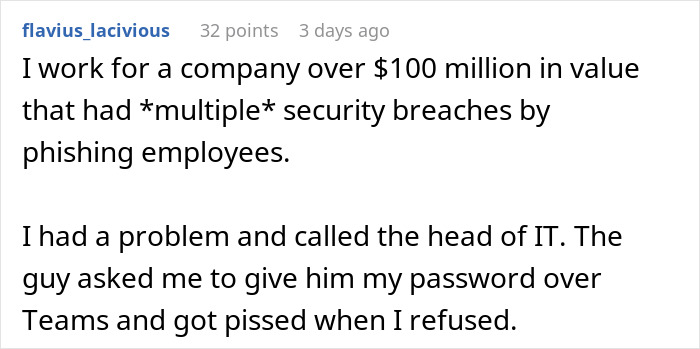





85
8